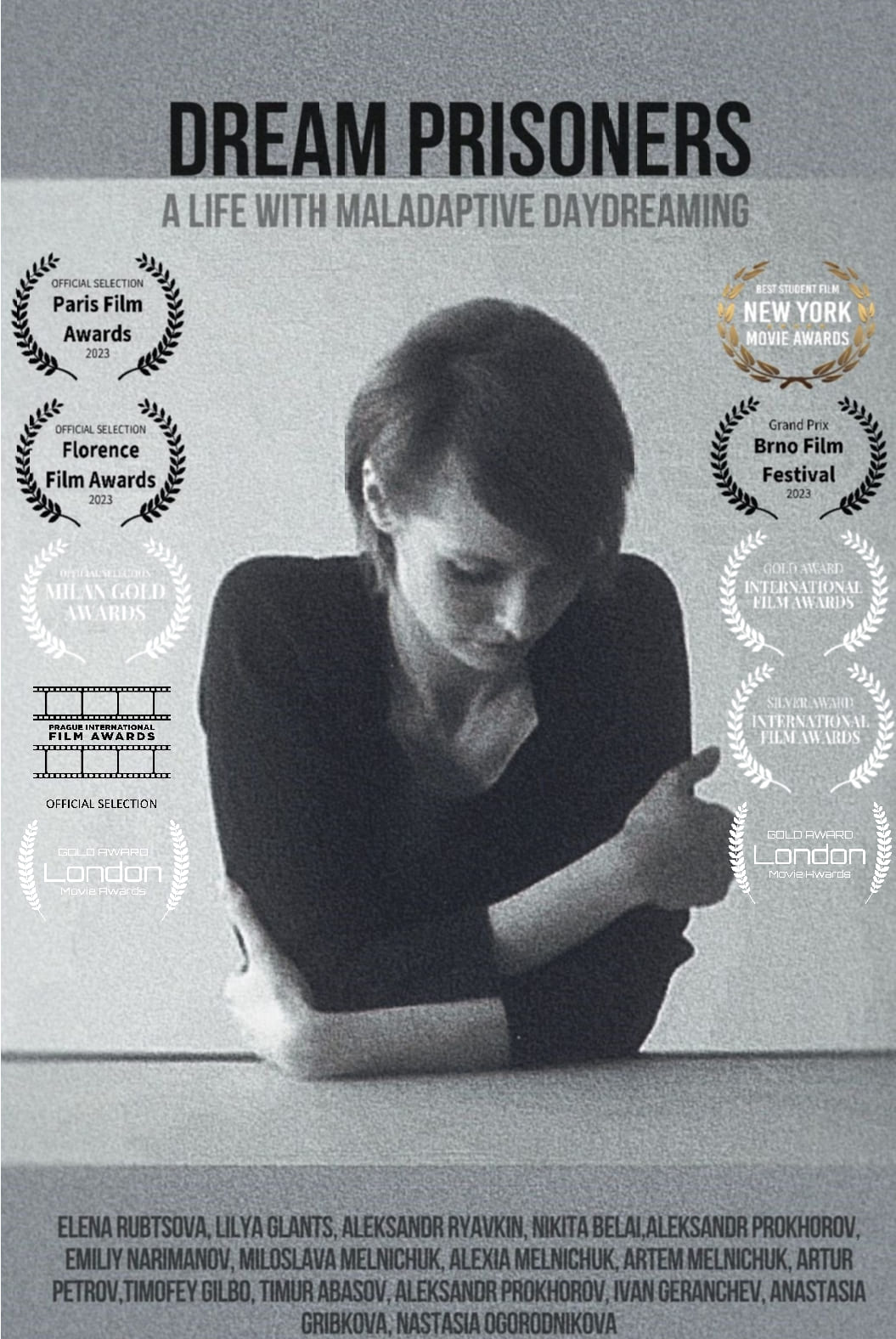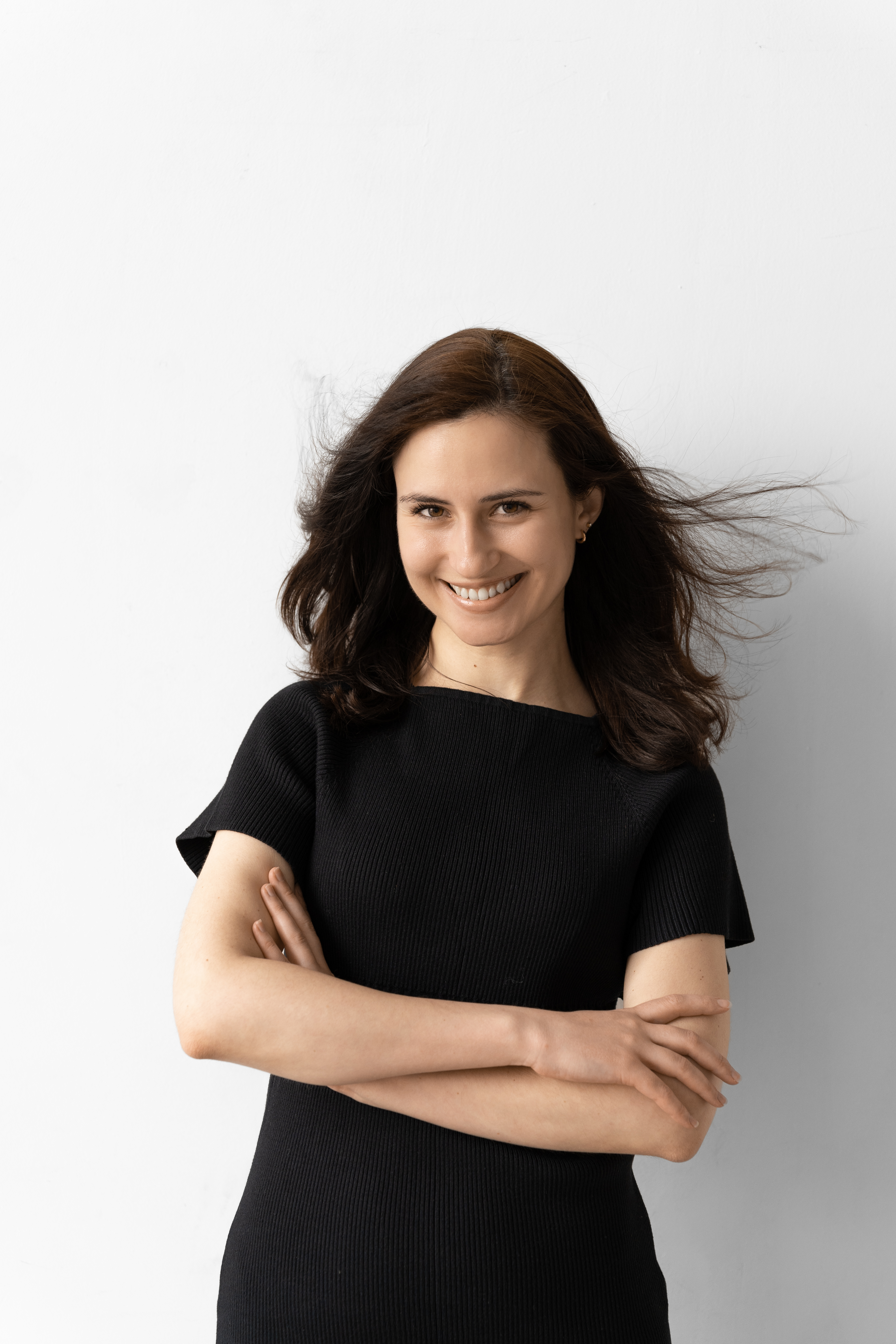Elena Rubtsova
Elena Rubtsova, TV and radio host, director of documentaries. She received a Master's degree in International relations at the Prague University of Economics and Business. Later Elena graduated from Prague Higher School of Journalism. Film Dream Prisoners was her diploma film, as a documentary director, and received warm reactions from professionals and the public.
What is the story behind your film?
"Dream prisoners" are screaming out loud the story of people, locked in their own dreamland. This is my story. As a child I was a big dreamer, it was my form of escapism, as the real world seemed to be full of criticism and ignorance. I had a fear to express myself in reality, and created a safe imaginary space, where I could live. Then it started to be a habit. And later on it turned into an addiction. It sounds inappropriate, immature for an adult to be addicted to dreams, so you feel ashamed to share this. For years I thought to be only one with this problem, but after I accidentally found out the studies of dr. Somer, I felt incredible relief - I was not alone, there are other people with the same issue! I got so inspired and got an enormous need to spread the information, to help other people with the same situation as mine. I met Lilya Glants, the feature films director and the actress, and she was also very driven by the idea of the project. I am very grateful for her participation and involvement of her team and their high professionalism. So we made this dream come true.

What should people take away, gain, realize after watching your film?
That sometimes daydreaming can be harmful and can kidnap your precious time, energy and social connections. There is nothing to be ashamed of, if you feel addicted to your dreams. It is not the question of weakness, it is your creative mind trying to handle reality its own way. And that there are other people, who went through this, they know how exactly it feels. And there are ideas, ways, how you can help yourself. Just like toddlers need to learn basic skill - how to sleep, maladaptive daydreamers, no matter what age they are, need to learn how to live. Remember, you are not alone.
Do you think that films can change people for the better or for the worse?
Nowadays, it is the most powerful form of art. Movies are getting under your skin, if you recognize yourself in the characters. They can give you support and acceptance - you are not alone with your feelings, it is Ok to feel anything. The more destructive your emotions are, the more you need this friendly hand. Movies can bring you thoughts and ideas, and sometimes they give you inspiration and energy. But you always need to stay critical and remember - a movie is an emotional path that the director created for you. This is his or her way of thinking, the way he sees the world. And sometimes it does not have to match with your universe.
What creation style did you use in the production of your project? What cameraman elements did you use?
We made a world of dreams more vivid both with camera movement and colours. The reality was vice versa grey and pictured with a static camera. The viewers notice the difference subconsciously.
How did you select the actors for your project?
Our actors act without words - they have to show emotions, thoughts, dialogues, without speaking a word. Lilya Glants - main actress - is one of co-directors, so she was deep in the material from the beginning. For the main male actor we were searching for someone with chemistry with Lilya without words. And as one of the main parts is dedicated to a small girl, and some of the episodes were supposed to be quite stressful, we were looking for a family of actors, who can handle it and support the small actress in the scene.
Why do you think your film should appeal to distributors?
"Dream prisoners" is the first film about maladaptive daydreaming (MD) in the world. This is a newly described phenomena and there is definitely a huge lack of information about it. New studies about MD keep appearing around the globe and it has a chance soon to become officially a new psychological disorder. This film spreads information about phenomena and supports people, who are afraid to open up and consider themselves trapped in their brain game.
At which festival has your film been screened?
"Dream prisoners" was presented and received trophies all around the world: New York Movie Awards, European Short Awards, London Movie Awards, International Gold Awards, Director Talents Movie Awards, BELIFF - Be Epic! Film Fest LONDON (film was also screened online on Entertainment Oxygen platform), Bucharest ShortCut CineFest and others.
How did your acquaintances react when they first saw the film?
My family and friends were shocked for two reasons: some of them knew me for ages, but could not imagine that I was going through this. The other part confessed that they knew this kind of daydreaming, but they had no idea that there was a name for it and that there were other people with this phenomenon. Basically, just showing it to my acquaintance has already fulfilled its mission - to help people understand this phenomena, accept it and get to the point, they are not alone.
If you could change something in your film, what would it be?
At the moment of creation I had two limitations: maximum length of the film, given by my school (this is my students film), and limit of travelling due to covid pandemic period. Nowadays I would make this documentary longer, as there is so much information still missing in it, and definitely I would take all the interviews not via zoom, but live, to make the picture and viewers' acceptance better.
Which movies are your favorites and why?
I recognise the giant power of the movies to make us better humans, to learn how to be empathic. That is why I love films like "Intouchables" by Olivier Nacache or "Mr. Nobody" by Jaco van Dormael. I also love movies where the picture itself is the form of art and makes you think - Stanley Kubrick, Denis Villeneuve, Andrey Tarkovsky.
What topics do you like to address in your stories?
I would admire the opportunity to lighten the strength that people have inside them to handle different life struggles - postpartum depression, school bullying, agism and others. The mission is to give a warm hug to those in need with the movie art and inspire them.
What is your motivation in making films?
I am persuaded that we all have a mission. And quite often this mission grows out from our traumas. Sharing them you learn how to heal by yourself and you teach and support others. My traumas are connected with social fears and loneliness, and I feel obliged to give a hand to others with this insecurity.

Which contemporary filmmakers motivate you the most?
Currently my biggest inspiration is Denis Villeneuve. Watching his Dune or Arrival makes me want to immediately write down ideas for a new script and work, work, work!
What projects do you plan to shoot in the future?
Currently we are working on a feature series about group therapy with patients, having different psychological disorders. We are very excited to share more details soon!
